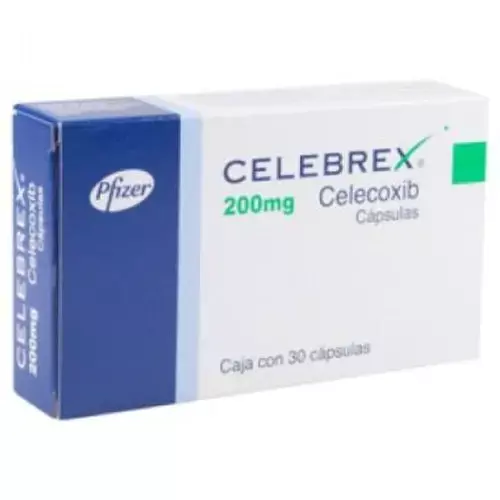- Home
- Medical news & Guidelines
- Anesthesiology
- Cardiology and CTVS
- Critical Care
- Dentistry
- Dermatology
- Diabetes and Endocrinology
- ENT
- Gastroenterology
- Medicine
- Nephrology
- Neurology
- Obstretics-Gynaecology
- Oncology
- Ophthalmology
- Orthopaedics
- Pediatrics-Neonatology
- Psychiatry
- Pulmonology
- Radiology
- Surgery
- Urology
- Laboratory Medicine
- Diet
- Nursing
- Paramedical
- Physiotherapy
- Health news
- Fact Check
- Bone Health Fact Check
- Brain Health Fact Check
- Cancer Related Fact Check
- Child Care Fact Check
- Dental and oral health fact check
- Diabetes and metabolic health fact check
- Diet and Nutrition Fact Check
- Eye and ENT Care Fact Check
- Fitness fact check
- Gut health fact check
- Heart health fact check
- Kidney health fact check
- Medical education fact check
- Men's health fact check
- Respiratory fact check
- Skin and hair care fact check
- Vaccine and Immunization fact check
- Women's health fact check
- AYUSH
- State News
- Andaman and Nicobar Islands
- Andhra Pradesh
- Arunachal Pradesh
- Assam
- Bihar
- Chandigarh
- Chattisgarh
- Dadra and Nagar Haveli
- Daman and Diu
- Delhi
- Goa
- Gujarat
- Haryana
- Himachal Pradesh
- Jammu & Kashmir
- Jharkhand
- Karnataka
- Kerala
- Ladakh
- Lakshadweep
- Madhya Pradesh
- Maharashtra
- Manipur
- Meghalaya
- Mizoram
- Nagaland
- Odisha
- Puducherry
- Punjab
- Rajasthan
- Sikkim
- Tamil Nadu
- Telangana
- Tripura
- Uttar Pradesh
- Uttrakhand
- West Bengal
- Medical Education
- Industry
Add on COX-2 inhibitors do not Improve Survival in Patients with CRC: JAMA

Aspirin and cyclooxygenase 2 (COX-2) inhibitors have been associated with a reduced risk of colorectal polyps and cancer in observational and randomized studies. However, in a recent study, researchers have found that among patients with stage III colon cancer, the addition of celecoxib, compared with placebo, to standard adjuvant chemotherapy did not significantly improve disease-free survival. The study findings were published in the JAMA on April 06, 2021.
Aspirin and nonsteroidal anti-inflammatory drugs (NSAIDs) have long been studied as agents that may influence cancer development and progression. Previous studies have shown that usage of aspirin and the COX-2 inhibitor either before or after colorectal cancer diagnosis was associated with a lower risk of recurrent disease than with nonusers. However, the effect of celecoxib, a COX-2 inhibitor, as a treatment for nonmetastatic colon cancer is unknown. Therefore, Dr Jeffrey A. Meyerhardt and his team conducted a study to determine if the addition of celecoxib to adjuvant chemotherapy with fluorouracil, leucovorin, and oxaliplatin (FOLFOX) improves disease-free survival in patients with stage III colon cancer.
Cancer and Leukemia Group B (Alliance)/Southwest Oncology Group 80702 was a crossover, multicenter, phase 3 study conducted throughout the United States and Canada. The researchers included 2526 patients with stage III colon cancer between June 2010 and November 2015 and followed them through August 10, 2020. They randomly assigned the patients to receive adjuvant FOLFOX (every 2weeks) for three vs six months with or without 3years of celecoxib (400 mg orally daily; n = 1263) vs placebo (n = 1261). The major outcome assessed was disease-free survival (DFS), measured from the time of randomization until documented recurrence or death from any cause. They also assessed overall survival, adverse events, and cardiovascular-specific events.
Key findings of the study were:
- Upon analysis, the researchers observed a total of 337 patients randomized to celecoxib and 363 to placebo experienced disease recurrence or died, and with 6years' median follow-up, the 3-year disease-free survival was 76.3% for celecoxib-treated patients vs 73.4% for placebo-treated patients (hazard ratio (HR) 0.89).
- They found that celecoxib treatment did not have a significant effect on DFS according to the assigned duration of 3 or 6 months of adjuvant fluorouracil, leucovorin, and oxaliplatin (FOLFOX).
- They also found a similar 5-year overall survival rate in both arms: 84.3% for celecoxib versus 81.6% for placebo, with an HR for death of 0.86.
- However, they noted that the use of celecoxib significantly increases the risk of hypertension of any grade during FOLFOX treatment, affecting 14.6% of the celecoxib group versus 10.9% of the placebo group.
- They further noted that celecoxib also increased the risk of a grade 2 or higher elevation in creatinine levels after completion of FOLFOX, in 1.7% and 0.5% of the two arms patients, respectively.
The authors concluded, "Among patients with stage III colon cancer, the addition of celecoxib for 3 years, compared with placebo, to standard adjuvant chemotherapy did not significantly improve disease-free survival."
For further information:
Medical Dialogues Bureau consists of a team of passionate medical/scientific writers, led by doctors and healthcare researchers. Our team efforts to bring you updated and timely news about the important happenings of the medical and healthcare sector. Our editorial team can be reached at editorial@medicaldialogues.in.
Dr Kamal Kant Kohli-MBBS, DTCD- a chest specialist with more than 30 years of practice and a flair for writing clinical articles, Dr Kamal Kant Kohli joined Medical Dialogues as a Chief Editor of Medical News. Besides writing articles, as an editor, he proofreads and verifies all the medical content published on Medical Dialogues including those coming from journals, studies,medical conferences,guidelines etc. Email: drkohli@medicaldialogues.in. Contact no. 011-43720751


